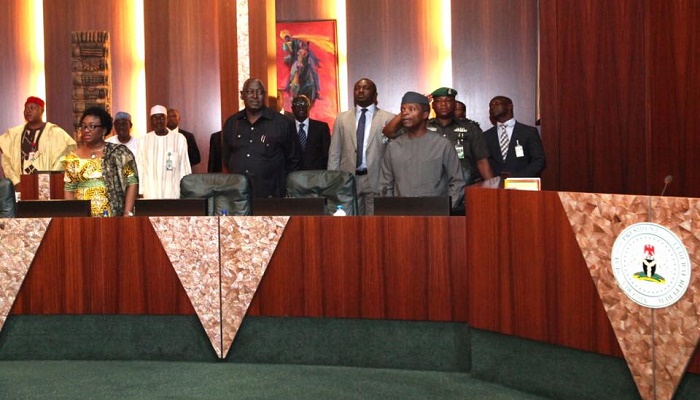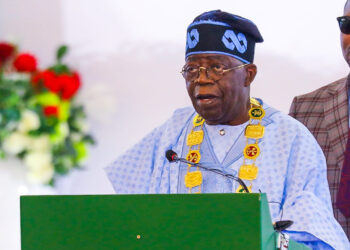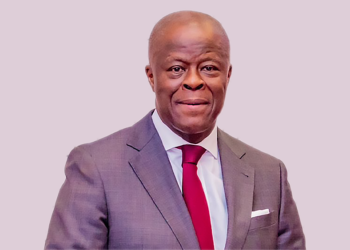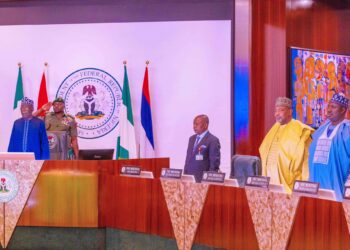The Federal Executive Council (FEC) has placed a limit on the amount that would be spent by the federal government from oil proceeds, in order to set aside more money for the Sovereign Wealth Fund (SWF).
This limit was part of the policies contained in the newly approved National Policy initiative by the Ministry of Petroleum Resources.
According to a report by Thisday, a limit will be placed on the amount of oil revenue that can be spent by the Federal Government, a percentage would also go into the Sovereign Wealth Fund (SWF) for future generations and funding of key infrastructure projects.
The government will explore mechanisms by which petroleum revenue can be managed for the benefit of future generations. The intention is for Nigeria to commit to two principles: To put a cap on the proportion of petroleum revenue that can be spent on current national expenditure; to put an agreed proportion of petroleum revenue into the Sovereign Wealth Fund to be used for underpinning major infrastructure projects within Nigeria, put aside or invested for the benefit of future generations, the policy states.
The SWF was launched by the Nigeria Sovereign Investment Authority (NSIA) in 2012 to keep surplus income produced from Nigeria’s excess oil reserves. Simply put, the SWF takes the portion of oil revenue that is earned by the country above the crude oil benchmark in the budget. The Nigerian Sovereign Wealth Fund is comprised of three funds:
Stabilisation fund
This is maintained to cater for situations where the planned spending exceeds planned revenue by the Federal Government within a fiscal year. That is, it serves as the last resort to meet annual budget deficit where revenues from petroleum sales are less than the level anticipated and approved by the National Assembly.
Future Generations Fund
This fund is a savings fund kept by the Federal Government to build an inter-generational savings base by investing in longer term assets that generate returns to accumulate wealth for future generations of Nigerians
Nigeria Infrastructure fund
The Nigeria Infrastructure Fund was designed to cover the nation’s infrastructure gap by investing in the development of critical facilities across the country, with 10% devoted to agriculture and development projects.
Comparing SWFs among League of Oil producing Nations
In the league of other oil producing countries, Nigeria still lag behind as the fund currently holds $1.5 Billion.

On oil Joint Ventures
The policy also proposes the conversion of some oil Joint Venture (JV) operations to Production Sharing Contracts (PSCs) as part of its plan to exit the JVs by the end of 2017. A PSC does not grant ownership, but a right to a share of the revenues from the sale of oil and gas. In a PSC, the oil companies recover their capital and operating expenditure, before sharing profits with the government.
Under the new petroleum policy, the government may consider the conversion of some JVs to Production Sharing Contracts. However, such potential conversions need to meet the requirement that the historical equity capital contributions to the resource must be recognised and the risk reward profile must be significantly beneficial to the state, it noted.
On the JV cash calls, it said the challenges of the Nigerian National Petroleum Corporation (NNPC) with meeting its obligations would be addressed with the proper capitalisation of the state-run oil firm, with a structure that allows for project and balance sheet financing.
According to the new policy, the government will participate less in financing operations in the sector, except on rare occasions where it would be required to make pioneer investment to enable private investors take up huge interest going forward.
On the Niger Delta
As stated in the petroleum policy, the government will develop a Niger Delta-wide model with the intention of involving Niger Delta communities directly in infrastructure, social and petroleum developments in their local community area.
For instance, it will identify marginal fields which it may be possible to develop in partnership with local communities, with the aim of integrating them into project developments.
Another area to be explored is the setting up of community-based funds for communities as well as small equity holdings for communities in oil operations in their areas.
The Minister of State for Petroleum Resources, Dr. Ibe Kachikwu, remarked that the policy defined the strategy of the government with respect to Nigeria’s oil resources and establishes the medium to long-term targets for oil reserves growth and utilisation, as well as strategies to be pursued to ensure the successful implementation of the policy in accordance with Nigeria’s national socio-economic development priorities.


















